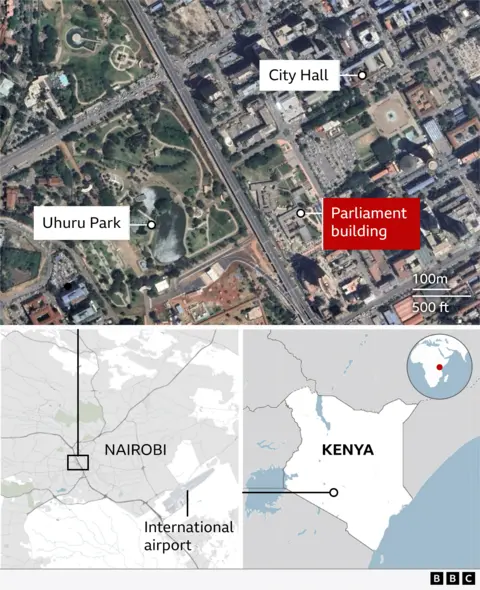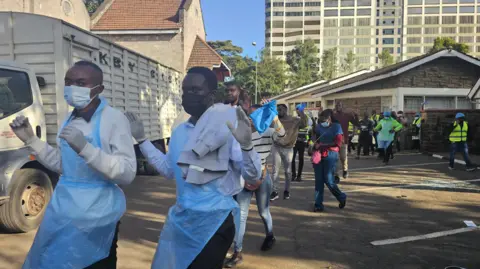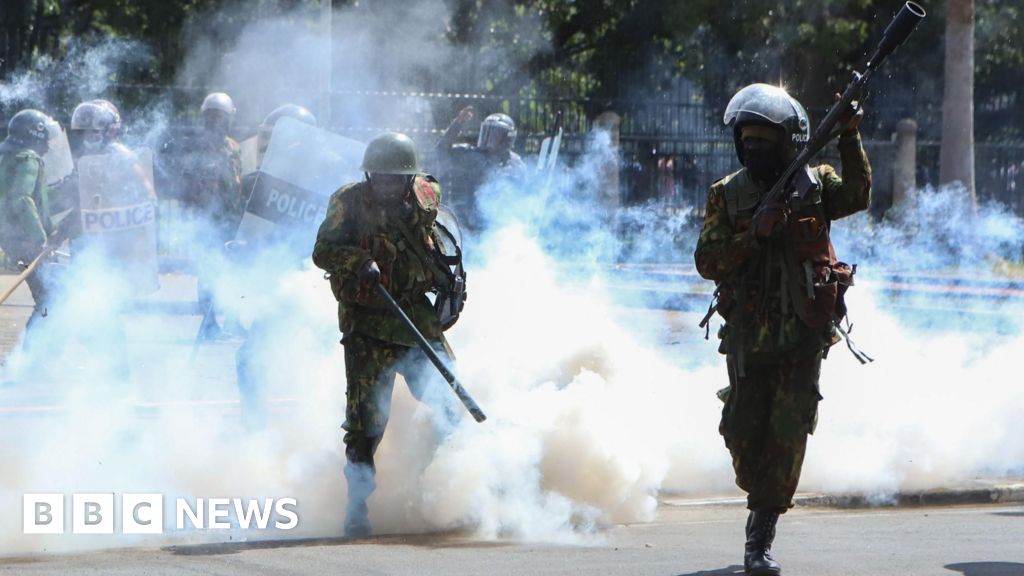By Ido Vock and Basillioh Rukanga, BBC News
At least five protesters have been shot dead by police in Kenya and a section of parliament has gone up in flames as demonstrations against new tax proposals escalate.
An angry crowd broke through police lines to storm parliament in the capital Nairobi before setting parts of it ablaze.
In an address on Tuesday evening, President William Ruto said all means would be deployed to “thwart any attempts by dangerous criminals to undermine the security and stability of our country”.
He has deployed the military to quell the protests.
Protests against an unpopular finance bill, which includes several tax rises, have been ongoing for days. But they escalated on Tuesday as MPs passed an amended bill.
Protesters broke into parliament, vandalising the interior and setting parts of the complex on fire. The ceremonial mace, symbolising the authority of the legislature, was stolen.
Police opened fire with live ammunition, killing at least five people according to the Kenya Medical Association. A BBC reporter at the scene reported seeing bodies lying on the street in pools of blood.
“There are some things that are hard to understand, like how can you impose 16% tax on bread? How can you tax sanitary pads?” 24-year-old Derrick Mwathu told the BBC, referring to some of the proposals contained in the original bill.
President Ruto pledged a tough response to what he called the “violence and anarchy”.
“It is not in order or even conceivable that criminals pretending to be peaceful protesters can reign terror against the people, their elected representatives and the institutions established under our constitution and expect to go scot-free,” Mr Ruto added.

Hundreds were reportedly injured, including with rubber bullets and tear gas. At a cathedral in Nairobi where a medical camp had been set up to tend to injured protesters, a BBC reporter witnessed doctors being forced out of the building by soldiers.
Another temporary unit was set up outside the emergency unit at Kenyatta National Hospital.

Former president Uhuru Kenyatta urged dialogue, saying Kenya’s leaders should “know that power and authority is donated to them by the people”.
Although the government has rowed back on some proposals in the original bill, protesters demanded that it be withdrawn in its entirety.
23-year-old Maureen Awuor said: “Our voice must be heard… We are the generation that is coming up, so they need to hear us.”
The protests have made headlines across Africa and other parts of the world.
Two of Africa’s leading anti-establishment figures, Ugandan opposition leader Bobi Wine and radical South African politician Julius Malema, have both expressed their support for the protesters.
Western countries have expressed concern at the violence and urged calm.
You may also be interested in:
 Getty Images/BBC
Getty Images/BBC

